-
 Bitcoin
Bitcoin $78,796.9316
-5.04% -
 Ethereum
Ethereum $1,584.9051
-11.62% -
 Tether USDt
Tether USDt $0.9993
-0.02% -
 XRP
XRP $1.9410
-8.76% -
 BNB
BNB $553.6498
-6.34% -
 USDC
USDC $0.9999
-0.01% -
 Solana
Solana $107.0398
-10.16% -
 Dogecoin
Dogecoin $0.1497
-10.76% -
 TRON
TRON $0.2307
-2.85% -
 Cardano
Cardano $0.5764
-11.14% -
 UNUS SED LEO
UNUS SED LEO $8.8563
-2.38% -
 Chainlink
Chainlink $11.3433
-10.33% -
 Toncoin
Toncoin $2.9272
-9.80% -
 Stellar
Stellar $0.2335
-6.68% -
 Avalanche
Avalanche $16.1739
-8.89% -
 Shiba Inu
Shiba Inu $0.0...01130
-7.91% -
 Sui
Sui $1.9334
-11.80% -
 Hedera
Hedera $0.1411
-12.44% -
 Polkadot
Polkadot $3.6844
-6.24% -
 MANTRA
MANTRA $5.9053
-5.59% -
 Bitcoin Cash
Bitcoin Cash $272.1550
-9.31% -
 Litecoin
Litecoin $70.9129
-13.60% -
 Dai
Dai $1.0000
-0.01% -
 Ethena USDe
Ethena USDe $0.9988
-0.03% -
 Bitget Token
Bitget Token $4.1372
-6.76% -
 Pi
Pi $0.6118
4.97% -
 Monero
Monero $199.8023
-6.06% -
 Hyperliquid
Hyperliquid $10.2970
-12.71% -
 OKB
OKB $53.9077
3.94% -
 Uniswap
Uniswap $5.0766
-12.47%
How do NFT Tax Implications affect the tax issues of NFT transactions?
NFT profits are taxed as capital gains, with rates depending on the holding period (short-term or long-term). Accurate record-keeping of purchase price, sale price, and transaction fees is crucial for tax compliance, as NFT tax laws are still evolving.
Mar 03, 2025 at 02:25 am
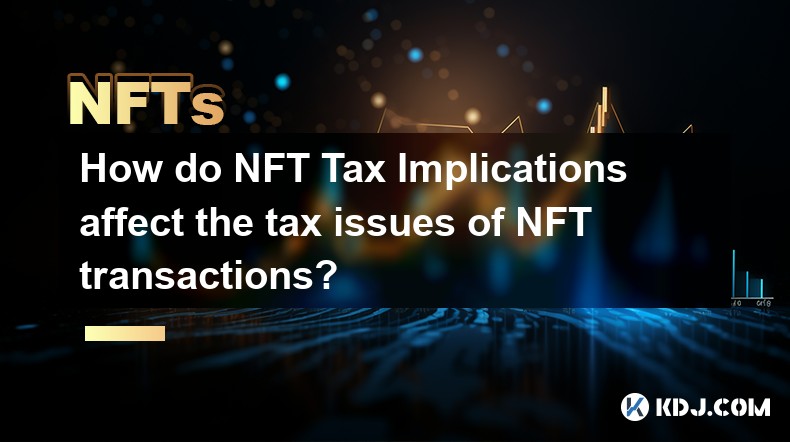
Key Points:
- NFTs are treated as property for tax purposes, meaning gains and losses are subject to capital gains taxes.
- The tax implications depend on how the NFT was acquired, how it was used, and how it was disposed of.
- Holding period significantly impacts the tax rate: short-term vs. long-term capital gains.
- Accurate record-keeping is crucial for calculating taxes owed on NFT transactions.
- Tax laws surrounding NFTs are still evolving, so staying updated is essential.
How Do NFT Tax Implications Affect the Tax Issues of NFT Transactions?
Navigating the tax landscape of Non-Fungible Tokens (NFTs) can be complex, as the relatively new asset class presents unique challenges for both investors and the tax authorities. Understanding the tax implications of NFT transactions is crucial to avoid penalties and ensure compliance. The primary principle to remember is that NFTs are generally treated as property for tax purposes, similar to stocks or real estate. This means any profit made from selling or trading NFTs is subject to capital gains tax.
The tax implications of an NFT transaction aren't uniform. Several factors determine the exact tax liability. The initial acquisition cost of the NFT plays a critical role. Did you purchase the NFT directly from the creator, a marketplace, or receive it as compensation? Each scenario has different tax implications at the point of acquisition. If you received it as compensation, it's treated as ordinary income, taxed at your ordinary income tax rate. If purchased, the purchase price becomes your cost basis.
The way you use the NFT also affects your tax liability. If you're actively trading NFTs as a business, your profits will likely be taxed as ordinary income. This differs significantly from the tax treatment of an NFT held as an investment, where capital gains taxes apply. This distinction hinges on the frequency and intent of your trading activity. Regular, high-volume trading suggests a business, while infrequent trading points towards investment.
Determining the holding period is essential for calculating the appropriate tax rate. Holding an NFT for less than one year classifies the gains as short-term capital gains, taxed at your ordinary income tax rate. Holding it for over a year results in long-term capital gains, generally taxed at a lower rate. This distinction can significantly impact your overall tax liability. Therefore, meticulous record-keeping is essential.
Record-Keeping for NFT Tax Compliance:
Maintaining accurate and detailed records is paramount for successful NFT tax compliance. This includes:
- Purchase records: Keep detailed records of every NFT purchase, including the date, price, and the platform used.
- Sale records: Document the date, sale price, and buyer for every NFT sale.
- Transaction fees: Keep track of all transaction fees incurred during buying and selling.
- Wallet addresses: Maintain records of all your cryptocurrency wallet addresses used for NFT transactions.
- Proof of ownership: Retain documentation proving your ownership of the NFTs.
Properly categorizing your NFT transactions is vital. If you received NFTs as airdrops or through giveaways, the fair market value at the time of receipt is considered income and is subject to tax. Similarly, using NFTs for staking or lending purposes can generate taxable income.
NFT Tax Implications: The Evolving Landscape
The regulatory landscape surrounding NFTs and cryptocurrencies is constantly evolving. Tax laws are still catching up with the rapid advancements in this technology. Therefore, it’s crucial to stay informed about the latest updates and guidance from tax authorities in your jurisdiction. Consulting with a tax professional specializing in cryptocurrencies and NFTs is highly recommended to ensure you understand your obligations and comply with the relevant tax laws. Failing to properly account for NFT transactions can lead to significant penalties.
Common Questions and Answers:
Q: Are all NFT transactions taxable?
A: Yes, generally. Any profit realized from selling or trading NFTs is taxable. Even gifting NFTs can have tax implications for the giver, based on the fair market value of the NFT at the time of the gift.
Q: What if I lose money on an NFT?
A: Losses on NFT sales are generally deductible against capital gains. However, there are limitations on the amount of losses you can deduct each year. Consult a tax professional for guidance on deducting NFT losses.
Q: How do I calculate my cost basis for an NFT?
A: Your cost basis generally includes the purchase price, any transaction fees, and any other costs incurred in acquiring the NFT. If you received the NFT as compensation, your cost basis is the fair market value at the time of receipt.
Q: What are the penalties for not reporting NFT income?
A: Penalties can range from interest charges on unpaid taxes to significant fines and even criminal prosecution in severe cases of tax evasion.
Q: Do I need a special tax form for NFT transactions?
A: There isn't a specific tax form solely for NFT transactions. You'll typically use the same forms you would for reporting other capital gains or income, such as Schedule D (Form 1040) for capital gains and losses. However, you may need to provide additional documentation to support your NFT transactions.
Q: Are NFTs taxed differently in different countries?
A: Yes, tax laws regarding NFTs vary significantly across countries. The tax treatment depends on local regulations and interpretations. It is vital to consult with a tax professional familiar with the laws in your specific jurisdiction.
Disclaimer:info@kdj.com
The information provided is not trading advice. kdj.com does not assume any responsibility for any investments made based on the information provided in this article. Cryptocurrencies are highly volatile and it is highly recommended that you invest with caution after thorough research!
If you believe that the content used on this website infringes your copyright, please contact us immediately (info@kdj.com) and we will delete it promptly.
- Why AI Cryptocurrencies Like Dawgz AI Will Outperform in the Next Bull Run
- 2025-04-07 06:15:12
- Rising trends in the metaverse ecosystem could cause the sector’s market capitalization to inflate
- 2025-04-07 06:15:12
- Ignacio Robles Will Replace Fernando Barbosa As Third Judge For Tyson Fury-Oleksandr Usyk Rematch
- 2025-04-07 06:10:13
- Immortal Rising 2's $IMT token listing is officially live on Bitget, KuCoin, MEXC, and Gate.io
- 2025-04-07 06:10:13
- LUNC (Terra Classic) Price Prediction: Will LUNC Token Go to the Moon?
- 2025-04-07 06:05:12
- Thomas 'Bomber' Kavanagh was the feared head of the Kinahan gang's UK faction before he was eventually taken down by police and jailed in 2022.
- 2025-04-07 06:05:12
Related knowledge
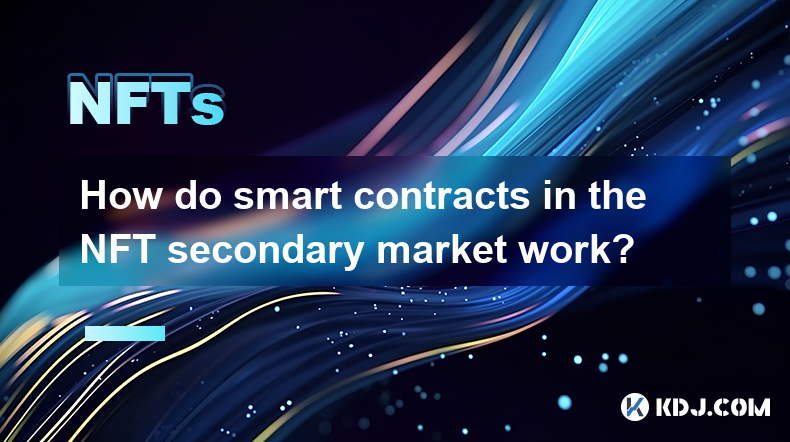
How do smart contracts in the NFT secondary market work?
Apr 03,2025 at 07:14am
Smart contracts play a pivotal role in the NFT secondary market, facilitating seamless transactions and enforcing predefined rules. These self-executing contracts with the terms of the agreement directly written into code are stored on the blockchain. In the context of NFTs, smart contracts automate the buying, selling, and transferring of digital asset...
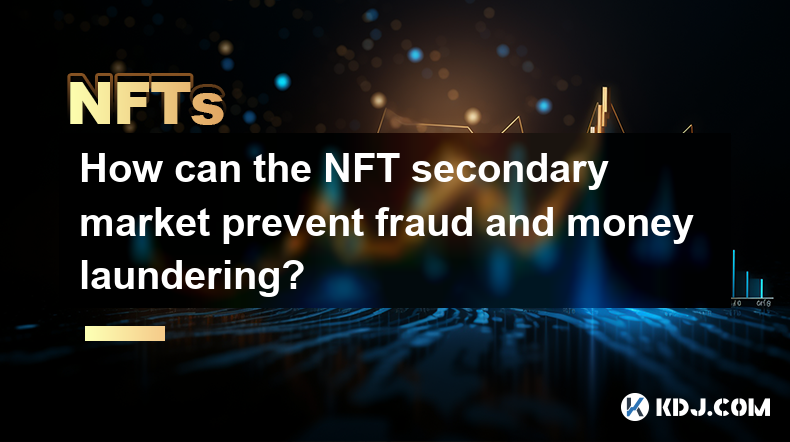
How can the NFT secondary market prevent fraud and money laundering?
Apr 03,2025 at 08:35am
The NFT secondary market has become a thriving hub for digital art and collectibles, but it also faces challenges in preventing fraud and money laundering. To tackle these issues, the market can implement various strategies and technologies to ensure a safer and more transparent trading environment. This article will explore how the NFT secondary market...
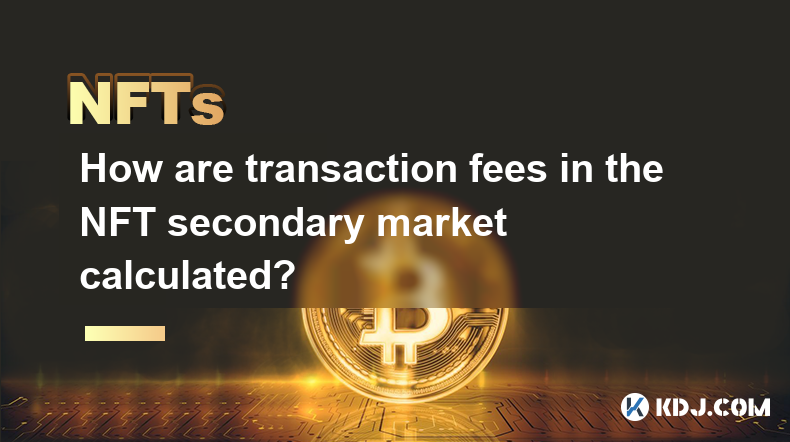
How are transaction fees in the NFT secondary market calculated?
Apr 04,2025 at 05:28am
The calculation of transaction fees in the NFT secondary market is a crucial aspect that both buyers and sellers need to understand. These fees can significantly impact the overall cost of transactions and the profits that sellers can make. In this article, we will delve into the various components that make up these fees, how they are calculated, and w...
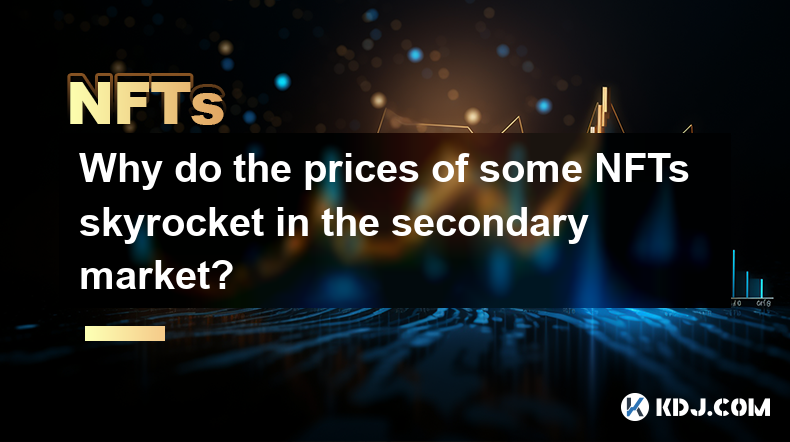
Why do the prices of some NFTs skyrocket in the secondary market?
Apr 06,2025 at 07:08am
The phenomenon of NFT prices skyrocketing in the secondary market is a fascinating aspect of the cryptocurrency and digital art world. Non-Fungible Tokens (NFTs) have taken the digital world by storm, and their value can surge dramatically after initial sales. Several factors contribute to this price surge, including rarity, demand, speculation, and the...
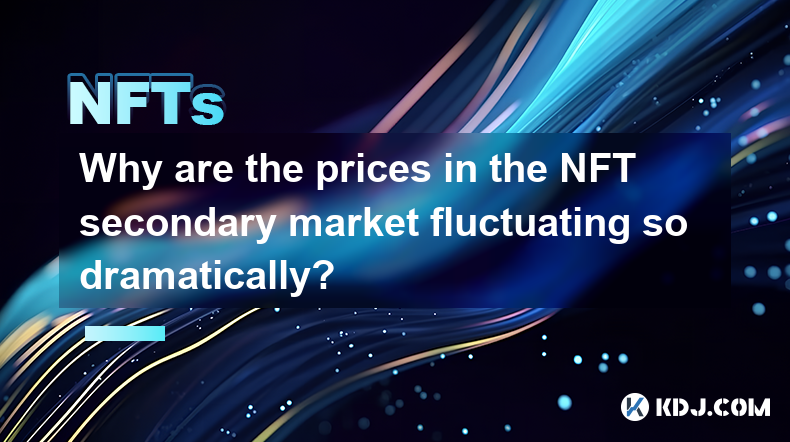
Why are the prices in the NFT secondary market fluctuating so dramatically?
Apr 03,2025 at 10:35pm
The NFT secondary market has been experiencing dramatic price fluctuations, leaving many in the cryptocurrency community puzzled and curious. To understand this phenomenon, it's essential to delve into the factors driving these price movements. From the impact of market sentiment and celebrity endorsements to the role of speculation and the unique natur...
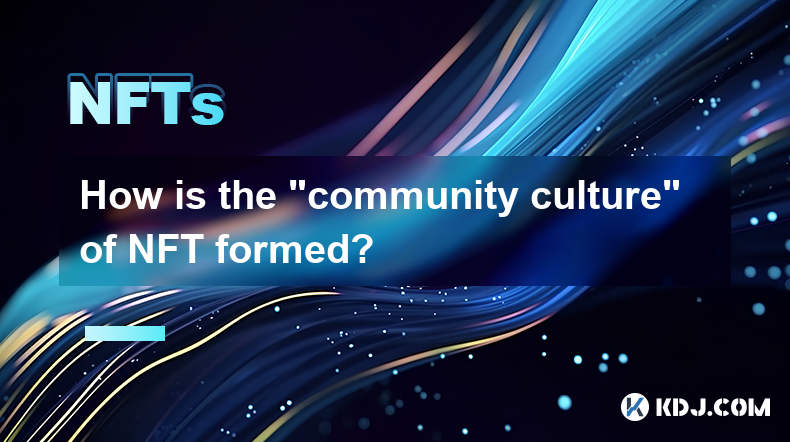
How is the “community culture” of NFT formed?
Apr 03,2025 at 11:07am
The formation of the 'community culture' within the NFT (Non-Fungible Token) space is a fascinating and multi-faceted process. It involves various elements such as shared interests, active engagement, and the creation of a sense of belonging among members. NFT communities often revolve around specific projects or artists, fostering a unique environment ...

How do smart contracts in the NFT secondary market work?
Apr 03,2025 at 07:14am
Smart contracts play a pivotal role in the NFT secondary market, facilitating seamless transactions and enforcing predefined rules. These self-executing contracts with the terms of the agreement directly written into code are stored on the blockchain. In the context of NFTs, smart contracts automate the buying, selling, and transferring of digital asset...

How can the NFT secondary market prevent fraud and money laundering?
Apr 03,2025 at 08:35am
The NFT secondary market has become a thriving hub for digital art and collectibles, but it also faces challenges in preventing fraud and money laundering. To tackle these issues, the market can implement various strategies and technologies to ensure a safer and more transparent trading environment. This article will explore how the NFT secondary market...

How are transaction fees in the NFT secondary market calculated?
Apr 04,2025 at 05:28am
The calculation of transaction fees in the NFT secondary market is a crucial aspect that both buyers and sellers need to understand. These fees can significantly impact the overall cost of transactions and the profits that sellers can make. In this article, we will delve into the various components that make up these fees, how they are calculated, and w...

Why do the prices of some NFTs skyrocket in the secondary market?
Apr 06,2025 at 07:08am
The phenomenon of NFT prices skyrocketing in the secondary market is a fascinating aspect of the cryptocurrency and digital art world. Non-Fungible Tokens (NFTs) have taken the digital world by storm, and their value can surge dramatically after initial sales. Several factors contribute to this price surge, including rarity, demand, speculation, and the...

Why are the prices in the NFT secondary market fluctuating so dramatically?
Apr 03,2025 at 10:35pm
The NFT secondary market has been experiencing dramatic price fluctuations, leaving many in the cryptocurrency community puzzled and curious. To understand this phenomenon, it's essential to delve into the factors driving these price movements. From the impact of market sentiment and celebrity endorsements to the role of speculation and the unique natur...

How is the “community culture” of NFT formed?
Apr 03,2025 at 11:07am
The formation of the 'community culture' within the NFT (Non-Fungible Token) space is a fascinating and multi-faceted process. It involves various elements such as shared interests, active engagement, and the creation of a sense of belonging among members. NFT communities often revolve around specific projects or artists, fostering a unique environment ...
See all articles





















































































